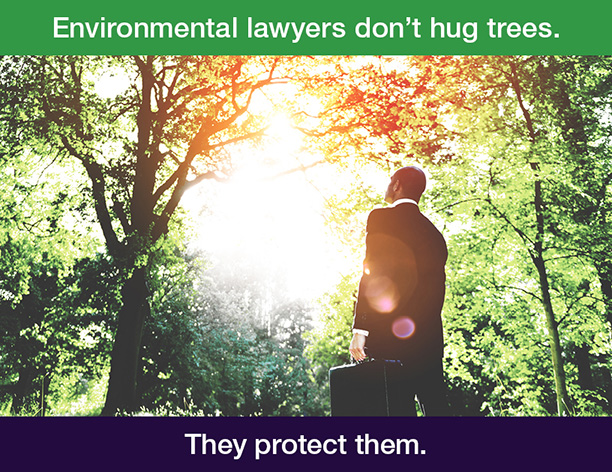High School is a Good Time to Consider if a Law Career is Right for You
What do Lawyers do?
Lawyers are professionals who help people understand and navigate the law. They advocate for clients and provide legal advice. Lawyers are problem-solvers and protectors of fairness. They use research, writing, and critical thinking to fight for justice and make a difference in people's lives. There are many different types of law that lawyers can choose to specialize in:
Who can alter the course of life or death? A good lawyer.
There are many types of lawyers. Criminal lawyers are the kind you often see on TV and in movies. They work as state or federal prosecutors, public defenders, private defense attorneys, and business counselors.
Successful criminal law attorneys are excellent legal writers, researchers, and negotiators. Public defenders represent defendants who can’t afford legal fees for their own attorney and have criminal charges against them.
When innocent people are sent to jail, it's a criminal defense lawyer who works to prove their innocence.
Environmental lawyers don’t hug trees. They protect them.
Not all attorneys argue cases in court each day. Some work to protect the natural environment, human health, and natural resources. They’re called environmental lawyers.
The purpose of environmental law is to protect human health, preserve the environment, and ensure sustainable development. Environmental laws are implemented and enforced by government agencies that monitor and regulate activities that may have an impact on the environment.
This type of law focuses on air quality laws, water quality, waste management, chemical safety, and the protection of endangered species.
Who gets called when families are at odds?
When legal matters between family members need to be worked out, a family lawyer steps in. This type of attorney deals with marriage, divorce, and separation; matters involving children such as child support decisions and navigating adoption; and other areas like estate planning and guardianship.
While some family lawyers develop a specialty, such as adoption law, most family lawyers have expertise in a number of practice areas. To excel as a family law attorney, you must have excellent interpersonal skills and be able to manage emotionally volatile situations.
When you think of lawyers, TV show courtroom attorneys may come to mind. But there are many kinds of lawyers practicing different areas of the law.
If your heart goes out to those trying to attain citizenship or relocate from one country to another, immigration law may interest you. Maybe you've known a family in this situation.
Immigration lawyers engage in direct service work to help clients go through the proper steps to obtain the legal right to work or stay in the United States. Others work with the government to enforce immigration laws. Immigration lawyers work in non-profit organizations, private immigration law firms, or federal, state or local government agencies.
Entertainers and sports figures know how to play their parts, but their expertise with legal aspects of their careers likely won’t win any awards. Luckily for them, there are lawyers with the knowledge to deal with a range of sports and entertainment industry issues.
Those in this industry face a broad range of complex issues including financing, borrowing, and investment; production and rights acquisition; contract disputes; media rights; intellectual property protection and enforcement; and much more.
A good lawyer can make all the difference to an entertainer, influencer, or sports figure.
These are just a few of many law specialties.
Sound like a good fit?
Steps to becoming a Lawyer
Graduate High School & Pursue a Four-Year Degree
Law schools, including Stetson Law, require applicants to have a bachelor’s degree before applying. While there is no specific "pre-law" major, choosing a field that develops analytical reasoning and research skills will serve you well.
Classes to take: Take advantage of Advanced Placement and Dual Enrollment course to earned college credit while in high school. Advanced social studies and English courses will help prepare you for law school.
Clubs (Student Government, Debate Team, Model U.N. National Honor Society).
You will take your SAT before LSAT.
Academic Excellence Matters
Your GPA is one of the most critical factors in law school admissions. The closer you can get to a 4.0 in college, the more competitive your application will be. If you struggle early on, focus on improving—an upward grade trend can demonstrate resilience and growth.
Hone Your Writing Skills
Legal education is writing-intensive, and strong writing abilities are essential for success. Take courses that challenge your ability to craft persuasive arguments, analyze complex material, and conduct in-depth research.
Pro Tip: Participate in debate teams, Model UN, or student journalism to enhance your analytical and public speaking skills.
Choose a College That Fits You
At Stetson Law, we admit students from a wide variety of undergraduate institutions. Whether you attend a large university or a small liberal arts college, the key is finding an environment where you will excel academically and personally.
What Should You Major In?
There is no "perfect" pre-law major, but some fields naturally prepare students for legal studies:
- Political Science
- History
- Economics
- English
- Philosophy
- Sociology
- Criminology/Criminal justice
Passion matters! Whether you major in music, engineering, or business, law schools look for students who demonstrate academic rigor, curiosity, and intellectual engagement.
Prepare for the LSAT Early
The Law School Admission Test (LSAT) is a key factor in law school admissions. It evaluates critical thinking, logic, and reading comprehension.
- The LSAT is scored between 120-180, with 160+ making you competitive at many top law schools.
- A 172+ is typically needed for the most prestigious programs.
Advice: Consider taking a diagnostic LSAT practice test as early as sophomore year in college.
Cultivate Strong Relationships with Professors
Your letters of recommendation should come from professors who know you well. Build relationships by attending office hours, assisting with research, and engaging in classroom discussions.
Develop a Competitive Résumé
Law schools value commitment and leadership over quantity. Instead of spreading yourself thin across many activities, focus on a few meaningful experiences, such as:
- Leadership roles in student organizations
- Internships or legal-related experiences
- Community service and advocacy work
- Local Teen Court Programs
Remember: A well-rounded application showcases academic excellence, leadership, and service—all qualities that align with Stetson Law’s values.
Explore Legal Careers
Before committing to law school, take time to learn about the profession:
- Shadow an Attorney – Connect with local lawyers and ask to observe their work.
- Attend a Court Hearing – Many trials are open to the public and offer firsthand insight into legal proceedings.
- Internships & Volunteering – Organizations like legal aid clinics, government offices, and non-profits often have roles for college students.
Did You Know? Stetson Law offers pre-law events, workshops, and mentorship opportunities to help aspiring lawyers explore the field.
Your next steps
- Maintain strong grades throughout high school and college.
- Select a major that challenges you and enhances your skills.
- Build meaningful relationships with mentors and professors.
- Prepare for the LSAT early to maximize your score.
- Explore legal careers through internships and professional networking.
Your journey to becoming a lawyer starts today - let us help you take the first step!
View Stetson Direct Admissions programs with partnered universities like Stetson’s undergraduate campus, USF, UWF, and Eckerd College.
You can also learn more about what it’s like to be an attorney while you’re still in high school! Stetson College of Law offers a free week-long summer program for high school students in the Tampa Bay area called Pathways to Justice Academy. USF also offers a summer Mock Trial intensive for high school students.




